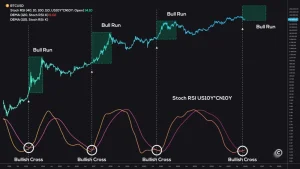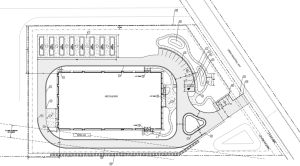Grant Cardone’s Bitcoin-Backed Real Estate Vision: A Disruptive Challenge to Traditional REITs

Entrepreneur and real estate magnate Grant Cardone has unveiled a groundbreaking financial model that merges real estate investment with Bitcoin, positioning it as a formidable alternative to traditional Real Estate Investment Trusts (REITs). His strategy aims to blend the stability of property ownership with the agility and liquidity of digital assets. Cardone argues that this hybrid model could redefine real estate investing by attracting a new generation of crypto-savvy investors while offering enhanced returns and flexibility. If successful, his approach could challenge the conventional dominance of REITs in the property investment ecosystem.
A Revolutionary Approach to Real Estate Finance
Grant Cardone’s reputation as a visionary investor has been cemented through his expansive property empire and innovative capital strategies. Now, he is pushing the boundaries further by introducing a model that integrates real estate with Bitcoin holdings — a concept designed to harness the strengths of both asset classes.
Traditional REITs, while providing accessibility and liquidity to small investors, often face limitations in yield potential and flexibility. Cardone’s proposal aims to address these inefficiencies by allowing investors to benefit from Bitcoin’s long-term appreciation while maintaining exposure to tangible, income-generating assets.
In essence, the model reimagines real estate as a dynamic, digitally enhanced investment vehicle — not just brick and mortar, but blockchain and data-driven capital.
How the Bitcoin-Real Estate Hybrid Works
The core of Cardone’s concept lies in tokenizing real estate assets and linking them to Bitcoin reserves. By blending physical property portfolios with digital value stores, investors gain a dual exposure — one that appreciates through market-driven rent income and another through cryptocurrency growth.
This structure could also introduce greater liquidity into an industry known for its capital rigidity. Unlike traditional REITs that trade on stock exchanges with limited volatility protection, Cardone’s framework envisions a decentralized system of ownership where fractionalized tokens represent real property stakes.
Such a design enables global investors to participate in high-value real estate projects without the bureaucratic barriers or heavy regulatory costs typically associated with institutional investing.
Why Cardone Believes This Model Will Outperform REITs
Cardone contends that REITs have failed to evolve with the modern financial landscape. Their dependence on conventional market structures, coupled with rising management fees and interest rate exposure, has reduced their appeal among younger investors.
In contrast, the Bitcoin-real estate hybrid offers diversification that transcends traditional asset boundaries. Bitcoin’s scarcity and decentralized nature could provide a hedge against inflation and currency devaluation, while real estate ensures stable, recurring income.
According to Cardone, this combination creates a “future-proof” investment model — one that capitalizes on digital innovation while grounding itself in tangible economic value. He envisions a marketplace where investors earn rental yields in fiat currency or crypto, gaining financial flexibility that REITs cannot match.
The Broader Implications for Global Property Investment
If Cardone’s approach gains traction, it could reshape global real estate financing. Tokenization allows property assets to be divided into digital shares, enabling easier trading and cross-border participation. This democratization of ownership could attract a younger demographic of investors who are comfortable with crypto assets but wary of traditional finance.
Moreover, this hybrid model aligns with the broader shift toward decentralized finance (DeFi), where investors seek autonomy, transparency, and real-time access to their portfolios. It also positions real estate within a blockchain-powered ecosystem, bridging a long-standing gap between physical assets and digital markets.
Challenges and Skepticism Ahead
Despite its appeal, the concept faces notable challenges. Regulatory uncertainty surrounding cryptocurrency integration into property markets remains a key obstacle. Governments across the world are still developing frameworks for tokenized assets, taxation, and investor protection.
Additionally, Bitcoin’s volatility raises questions about the model’s long-term stability. While Cardone emphasizes risk management through balanced asset allocation, skeptics argue that linking a relatively stable sector like real estate to a volatile one could amplify exposure during market downturns.
However, Cardone remains confident that technological maturity, combined with proper financial structuring, can mitigate these risks and create a new investment paradigm.
A Glimpse into the Future of Real Estate Investing
Grant Cardone’s Bitcoin-real estate hybrid represents more than a financial innovation — it signals a philosophical shift in how wealth and assets are conceptualized. The blending of physical and digital value streams could redefine diversification for the next generation of investors.
As institutional adoption of crypto accelerates and blockchain infrastructure strengthens, the line between traditional and digital investments will continue to blur. Cardone’s model stands at the intersection of these worlds, offering a bold vision of where finance might be headed.
If proven viable, this hybrid framework could disrupt REITs and set a new benchmark for how investors build wealth in an increasingly digital economy.





